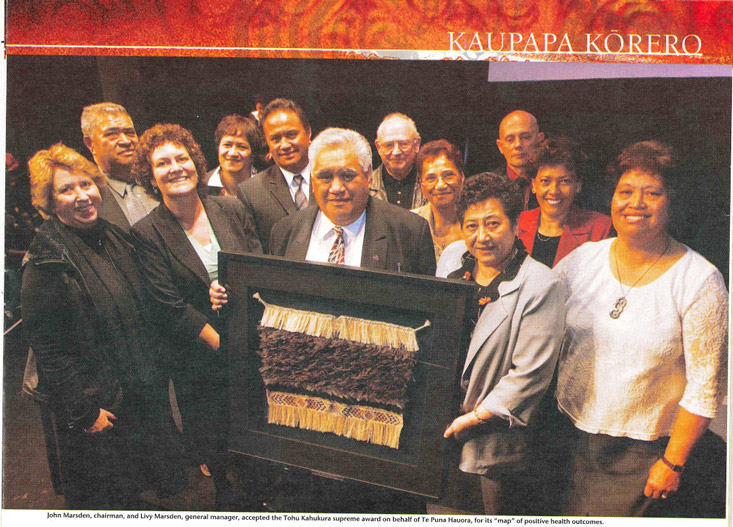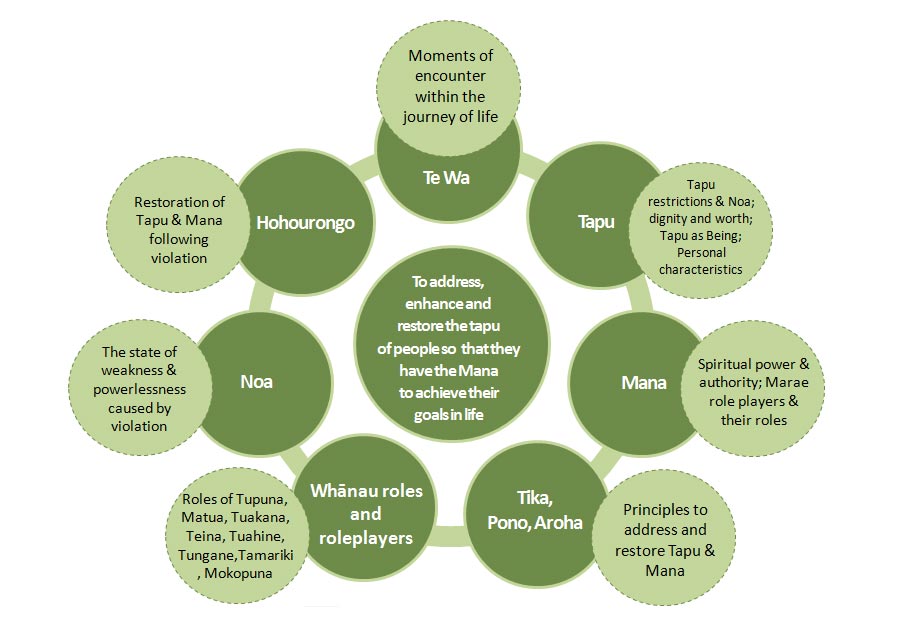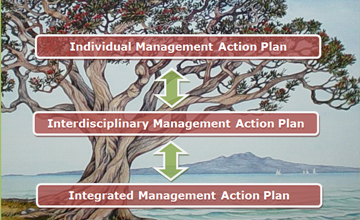Te Puna Hauora has developed from humble beginnings to become an integral part of the community of Te Raki Paewhenua. We continue to strive to develop our capacity and our abilities whilst always maintaining the people as our fundamental focus. Here is our story. A constitution was established for Te Puna Hauora o te Raki Paewhenua in November 1996. It was decided that this step would be taken to keep the operations of the health centre completely separated from the Awataha Marae activities, but also to provide the local community the opportunity to have an unbiased representation in the activities of the health clinic.

The next big milestone was that Te Puna Hauora began operation in its own right as a Primary Health Provider on the 20th March 1997. As the first bulk funding from the Health Funding Agency (HFA)was not due until the 20th April the CEO, had to approach the HFA for an advance $15,000 to cover salaries and daily operational costs. The advance of $15,000 was duly deducted from the 20th April 97 payment which of course meant the next months expenditure had to be managed very prudently to ensure no overrun of expenditure occurred. Naturally the financial situation took some 4-6months to stabilise before more staff etc could be employed. Throughout this time the services continued to expand taking into focus a wider range of services. In December 2000 a further milestone was reached where the Lady Allum building was procured for Te Puna Hauora Health Care Services along with the Te Puna Childcare Centre also being established. The Childcare Centre was opened for business in March 2001, while the Te Puna Hauora Health Care Centre was opened for business in May 2001. The rest of the events are now history as Te Puna Hauora credibility continued to grow along with a range of expanding new services.
A further milestone was achieved when in November/December 2004 a house was purchased at 166 Birkdale Road, Birkdale which was later gutted and renovated to reflect a Primary Health Clinic. This was opened for business in April 2005. In November 2007, a further building (ex doctors clinic) was procured at 44 Akoranga Drive, Northcote which was upgraded to reflect a further Primary Health Clinic and remained in operation until the end on December 2013. Te Puna PHO was established for business on 1st July 2005 of which this business also ran from our Birkdale Clinic at 166 Birkdale Road, Birkdale. At this date services operate out of both Northcote clinics and Birkdale along with 3.0 FTEs also working in the Rodney area dealing with Mobile Mental Health.
The confidence of whānau members to articulate and manage shared responsibility from dangerous risks behaviours to mapping solutions is obvious. The mutual trust, respect and empathy between the whānaura practitioner and whānau members is also obvious. The transformational change in the person and whānau dynamics is evident.
The Dynamics of Whānaungatanga

| Click to Enlarge |
- Interweaving the personal Mana and Ihi underpinned by Tika, Pono and Aroha allows Whānau, Hapu and Iwi to gain their own Rangatiratanga
- Provides an in-depth understanding of Whānaugatanga as a means to apply values and practical concepts in their daily lives and activities
- This is what Whānau Ora is all about
- Services have been using these concepts since its inception
- Revolves around the restoration of Tapu so that Whānau have the Mana to achieve their goals in life
- The skills and capacity to embrace and practice cultural principles, as part of a whānau development pathway, is central to success
- Supports the restoration of family relationships to bring clarity to the roles and responsibilities linked through Whānaungatanga
The I-MAP model has been created to underpin the kaupapa focusing on whanau. In order to achieve this, the main resources of the organisation are grouped around whanau and the I-MAP program. The mix of clinical and non-clinical services are thus able to blend to create an environment for excellence in service delivery to whanau. The primary resource of the organisation is the people who work for and with the organisation. As such they are all a part of the I-MAP team and have a role in the delivery of the I-MAP service.

Elements in the IMAP (Management Action Plan) Approach
Individual - Empowerment of the client to achieve their goals in health and wellbeing
Interdisciplinary - internal support from clinicians, CSWs, social and mental health workers, kaumatua, and other services within Te Puna. Also external support from external agencies and community allied services
Integrated / Intersectorial - the organisation itself and the importance of strong business practices, policies and values-based external relationships focused on favourable outcomes for the individual/whanau.
The Harakeke IMAP management model is three dimensional
Individual 'IMAP' Management Action Plan
Paramount is the Individual 'IMAP' Management Action Plan in which the whanau/client, with total support, is confident that s/he can map their way through complex issues. This is ideologically aligned with the weaver weaving the flax into the shape they want. In the Te Puna Hauora process the weaver is the whanau/client and Te Puna Hauora provides guidance on the weaving process. The third component is the organisation itself and is underpinned by the Integrated Management Action Plan emphasising strong business practices, policies and values based external relationships focussed on favourable outcomes for the individual/whanau.
Interdisciplinary 'I-MAP' Management Plan
The second is the Interdisciplinary Management Action Plan where the Community Support Worker, whose sole purpose is to mentor the whanau/client, internally has clinical support from Doctors, Nurses and Social Workers as well as the availability of all Te Puna Hauora services. External agencies and community allied services are included in case management and family group consultations facilitated by the Community Support Worker/Intersectorial and the whanau/client together.
Integrated 'IMAP' Management Action Plan
The third component is the organisation itself and is underpinned by the Integrated/Intersectorial Management Action Plan emphasising strong business practices, policies and values based external relationships focussed on favourable outcomes for the individual/whanau. More information on the IMAP model, click here